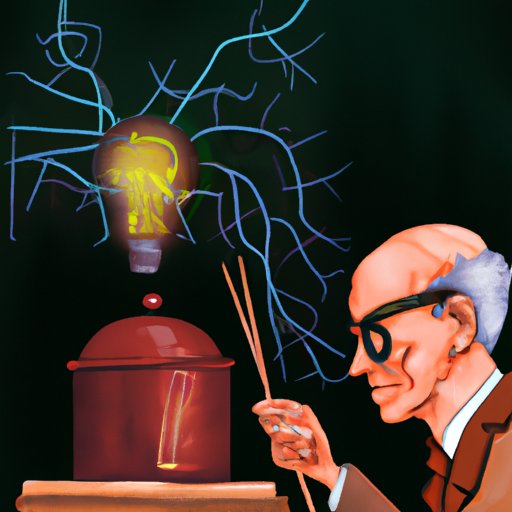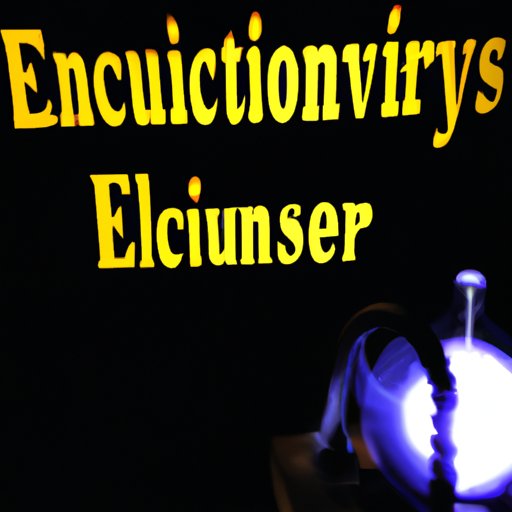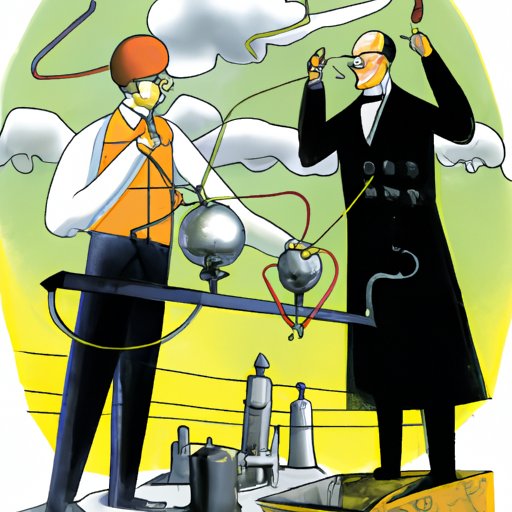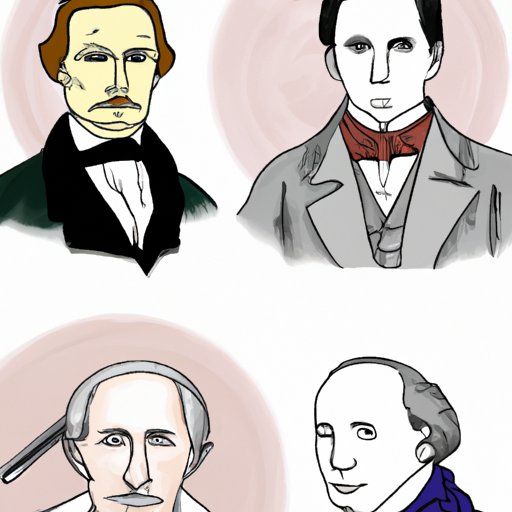Introduction
Electricity is a form of energy that can be used to power various devices and appliances. It is one of the most important inventions in history and has changed the way we live and work. But who invented electricity? This article explores the minds behind the invention of electricity and how their discoveries revolutionized the world.
A Historical Look at Who Invented Electricity
In the 17th century, scientists began experimenting with electricity. During this time, it was known as “animal electricity” because the experiments were conducted using animals. The first breakthrough in understanding electricity came in 1745 when Dutch scientist Pieter van Musschenbroek discovered the Leyden jar, a device that could store an electric charge.
In 1791, Italian physicist Alessandro Volta demonstrated the first battery, which generated a steady electric current. This was a major step forward in understanding electricity and paved the way for further innovations. In 1831, British scientist Michael Faraday demonstrated the principles of electromagnetic induction, which led to the development of generators and motors.
In the late 19th century, American inventor Thomas Edison developed the light bulb and his own electrical distribution system. At around the same time, Serbian-American inventor Nikola Tesla developed the alternating current (AC) system, which became the standard for electrical power transmission. Together, these inventors and scientists laid the foundation for the modern electrical grid.

Exploring the Minds Behind the Invention of Electricity
The invention of electricity was a collaborative effort involving many different people over a period of centuries. Here, we will take a look at some of the key figures in this story.
Pioneers of Electricity
Alessandro Volta (1745-1827) was an Italian physicist and pioneer in the field of electricity. He is best known for inventing the first battery, the voltaic pile, which could generate a steady electric current. His invention paved the way for further advancements in the field of electricity.
Thomas Edison (1847-1931) was an American inventor and businessman. He is credited with inventing the light bulb and developing an electrical distribution system. He also founded the first commercial research laboratory.
Nikola Tesla (1856-1943) was a Serbian-American inventor and engineer. He is best known for his contributions to the design of the AC system, which became the standard for electrical power transmission. He also developed the Tesla coil and wireless technology.
Michael Faraday (1791-1867) was a British scientist who made significant contributions to the understanding of electricity. He demonstrated the principles of electromagnetic induction, which led to the development of generators and motors. He also discovered the laws of electrolysis.
The Pioneers of Electricity: A Timeline of Key Figures
1745 – Pieter van Musschenbroek discovers the Leyden jar, a device that could store an electric charge.
1791 – Alessandro Volta demonstrates the first battery, the voltaic pile.
1831 – Michael Faraday demonstrates the principles of electromagnetic induction.
1847 – Thomas Edison invents the light bulb and develops an electrical distribution system.
1856 – Nikola Tesla develops the AC system, which becomes the standard for electrical power transmission.

How Scientists and Inventors Revolutionized the World with Electricity
The invention of electricity changed the world in ways that are still being felt today. For example, the light bulb enabled people to work and study during the night, and electric motors allowed for the mass production of everyday items.
Electricity has also had a profound impact on modern society. It has improved communication, enabled medical advances, and increased access to information. According to a study by the International Energy Agency, electricity is now the most widely used form of energy in the world.

The Unsung Heroes: Celebrating the Inventors of Electricity
The inventors of electricity often go unrecognized for their contributions to the world. To honor their legacy, we should recognize their achievements and celebrate their accomplishments.
One way to do this is through education. We should teach children about the pioneers of electricity and their remarkable discoveries. This will help to ensure that their legacy lives on for generations to come.
Another way to honor the inventors of electricity is to create monuments or memorials in their name. This will serve as a reminder of their achievements and help to keep their memory alive.
Conclusion
The invention of electricity was a monumental achievement that changed the world forever. It was the result of centuries of experimentation and collaboration between many brilliant minds. Alessandro Volta, Thomas Edison, Nikola Tesla, and Michael Faraday were just a few of the pioneers who made this incredible discovery possible.
We should recognize the contributions of these inventors and celebrate their legacy. Through education and memorials, we can ensure that their achievements will never be forgotten.
(Note: Is this article not meeting your expectations? Do you have knowledge or insights to share? Unlock new opportunities and expand your reach by joining our authors team. Click Registration to join us and share your expertise with our readers.)
